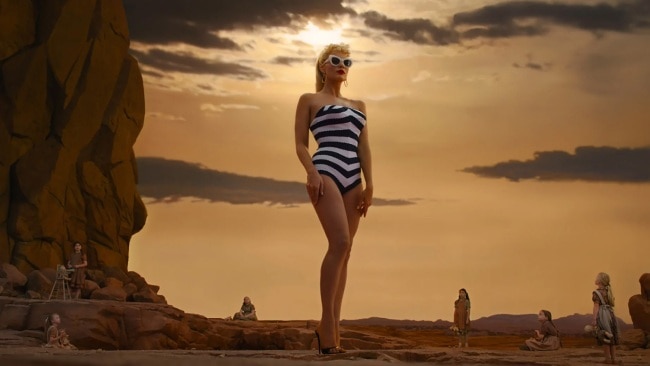The royal drama that makes The Crown look tame
It's been in the top ten on Netflix for months, and its writer heeds advice from Peter Morgan, The Crown's creator: it’s about truthful interpretation and not about the truth.
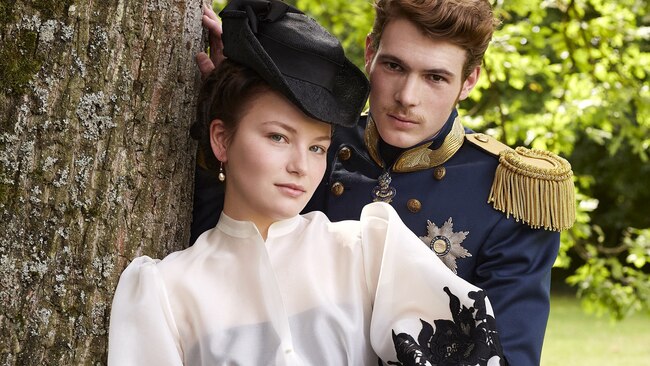
It's been in the top ten on Netflix for months, and its writer heeds advice from Peter Morgan, The Crown's creator: it’s about truthful interpretation and not about the truth.
Illicit affairs, knockout dresses, pomp and politics - no, not the new series of The Crown (two days to go . . .), but The Empress, another lavishly royal romp on Netflix that doesn’t so much turn the idea of dutiful nobility on its head as set it on fire. It takes as its subject Empress Elisabeth of Austria, or “Sisi”, wife of the emperor Franz Joseph I, who ruled from 1848 to 1916.
As played by the devilish 24-year-old German actress Devrim Lingnau, Elisabeth is an eccentric gadabout; she sneaks out of windows, spits from her royal carriage, climbs trees to enjoy a late-night smoke and stumbles back from endless parties blind drunk. The character is as wild and unruly as the horse she uses to escape, in the first episode, an unwanted marriage to a red-faced suitor - before the horse bucks its master to the ground.
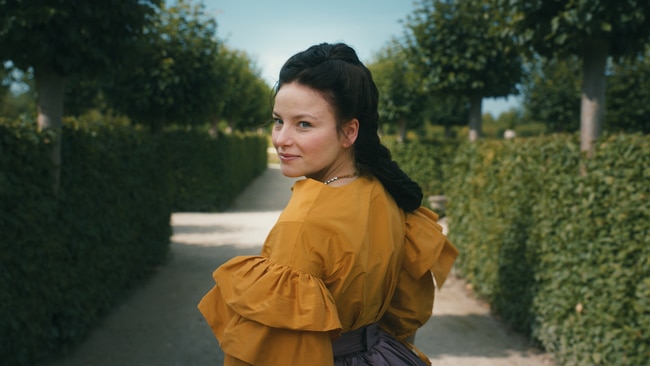
The six-part German drama has been in Netflix UK's top ten since it was released at the end of September and at one point was the most-watched non-English language TV series on the platform. Clearly, we have a boundless appetite for dramas featuring reluctant and rebellious female royals.
“Elisabeth was similar, I think, to Lady Diana,” says its creator, Katharina Eyssen, 39, in a video call from Berlin, where she lives, having grown up in Possenhofen, near Munich, in the same area as the empress.
“Elisabeth did her own thing and that was unconventional.”
In contrast to a rather stiff Franz Joseph (played by Philip Froissant), Elisabeth was the compassionate face of the royal family. “She did lots of things, like Diana, that really moved people, like going into asylums, visiting the wounded in hospitals, even influencing the emperor to liberate the Hungarians from the rule of Vienna,” Eyssen explains. “That made her very popular.”
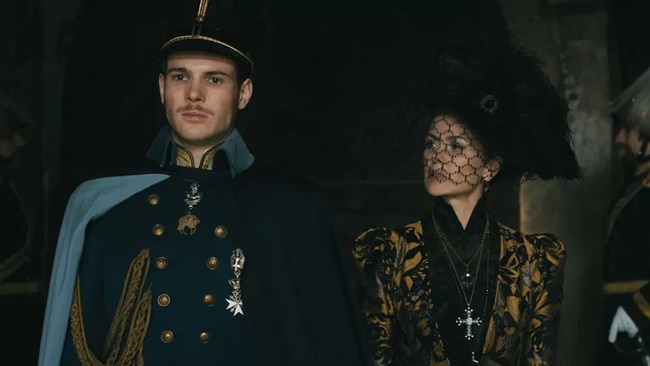
All the while, she was fighting her own demons. Although the first series of the Netflix show focuses on her youth and early rise to power, it hints at the severe depression and eating disorder that Elisabeth would struggle with later in life. “There’s always been women in history, like Lady Diana, who are not the leader per se, but who embody the feeling that something is not right about the system, and suffer from not being able to change it. Elisabeth was that kind of person.”
Eyssen was inspired to write The Empress by the present political landscape. A potential conflict with Russia bubbles away in the background of the drama. “The world [in March 2020] still had President Trump and Putin was on the rise,” she says. “At first I was worried that the tsar in my show came across like a caricature of the Russians. But then the war happened and we felt, well, now at least the tsar makes sense! Someone narcissistic, blinded by their own ego, who makes stupid decisions . . . it’s the same cycle of people trying to free themselves while autocratic leaders try to enlarge their empires.”
She was also writing not long after Brexit, which influenced her too. “Being from Germany, I had thought, ‘Everything is nice in Europe, we’re all friends now.’ But it felt like we were going back to having autocratic leaders again, because that’s what people want in troubled times. Look at Mr Trump - he’s insecure about whatever the f*** it is in his life, and so he is an arsehole to everybody else. I was very interested in this family dynamic, and how that impacts the course of a whole country.”
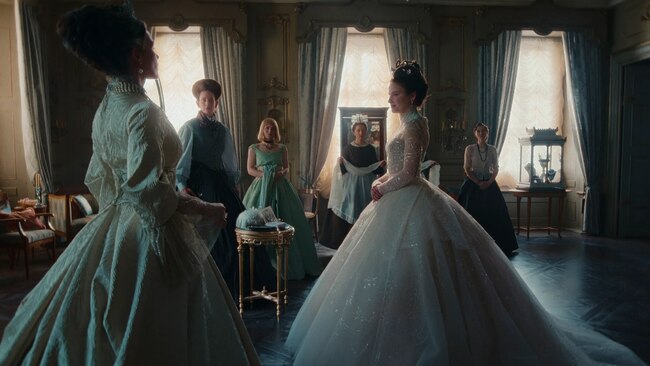
The show asks its audience to consider what makes a good leader. Is it the qualities of being steady and in control or is it the compassion and romance of Elisabeth? “She was considered crazy, and might still be considered crazy today. She was depressed and possibly had a borderline personality disorder, but maybe that can still make a good leader. You just look at the world differently,” Eyssen says. One of the most moving scenes in the series is when the empress defies her iron-fisted babysitter, Sophie Esterhazy-Liechtenstein, to witness the despicable working conditions for child labourers in a foundry. Elisabeth takes off her shoes, gives them to an orphan, then strolls back to her carriage barefoot through the soot.
This episode didn’t happen in real life. Does it matter? The writer doesn’t seem to think so.
“Peter Morgan [the creator of The Crown] told me that it’s about truthful interpretation and not about the truth per se."
"I went to a panel discussion with him where he talked about The Crown. He tries to be truthful to the character and to the emotions, but of course he has to make stuff up, otherwise it’s not good storytelling.”
In another scene Elisabeth shoots a boar while hunting with the tsar. “I don’t know if she ever shot the boar . . . but I knew that she grew up in the woods and went hunting with her dad, so why not?” Eyssen says.
As research, Eyssen read biographies of Elisabeth as well as her letters and poems. “But then I put them aside because I had to find my own interpretation,” she says. “She was eccentric, that’s for sure. So I made up things that I thought would be inside this realm of eccentricity.”
Eyssen is delighted by the success of the show so far on Netflix, particularly given that it is in German. “I don’t want to bash my own country because I’m German . . . but our film and TV business has not been great. We have great arthouse movies, but commercial stuff that has high value and reaches a broad audience has been small. I don’t have a problem if you watch the dubbed version, because a lot of the jokes are in the dialogue,” she says. “But I would love for people to listen to the show in German because for decades, it’s always been, ‘German’s not pretty, German is harsh’ . . . I would love to make German more popular.”
The empress’s later life is the subject of Corsage, a film directed by Marie Kreutzer, with Elisabeth played by Vicky Krieps (Phantom Thread), which hits cinemas next month. Meanwhile, Eyssen is already in discussions about a second series of The Empress. There is much more for it to explore - from the death of Elisabeth’s only son at the age of 30 alongside his 17-year-old mistress Mary Vetsera in a mysterious murder-suicide at his hunting lodge at Mayerling in 1889, to Elisabeth’s untimely death. The empress was assassinated in Geneva - stabbed in the heart by the 25-year-old Italian anarchist Luigi Lucheni in 1898. Her story, however, lives on.


